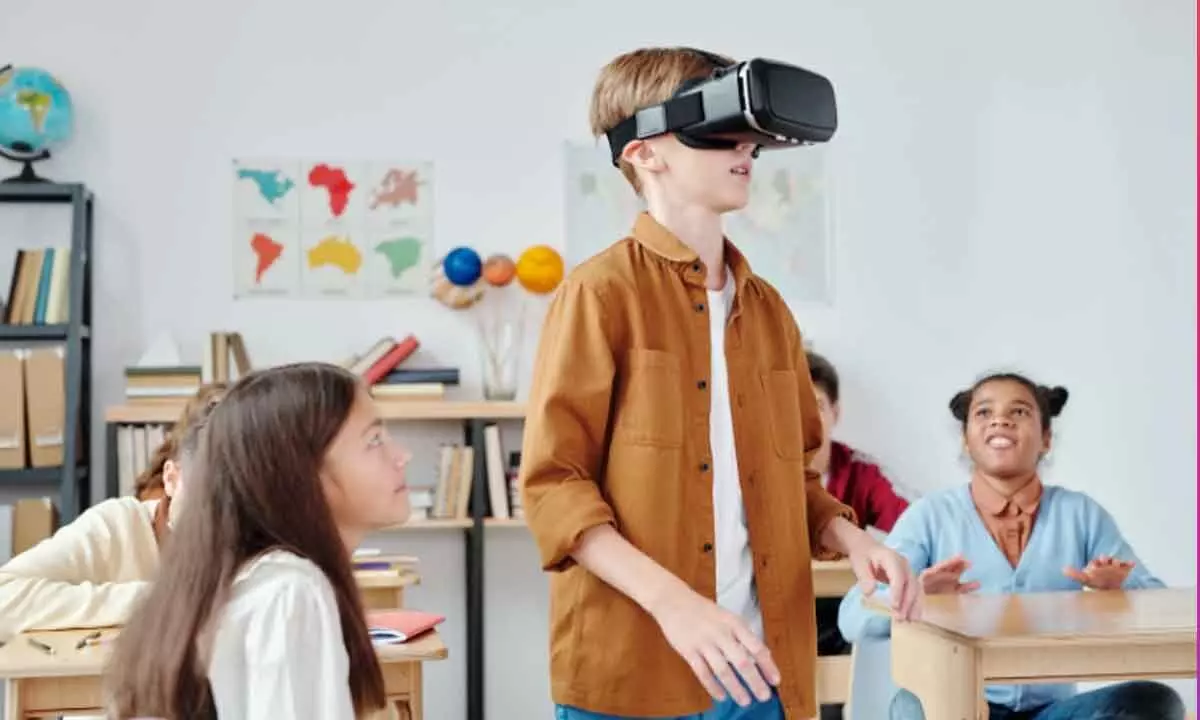Transforming education with multi-disciplinary learning spaces

In an ever-evolving landscape of education, traditional learning environments are being reimagined to meet the demands of a rapidly changing world. The emergence of multi-disciplinary learning spaces represents a revolutionary approach that transcends the confines of conventional labs, fostering creativity, collaboration, and innovation. These dynamic hubs of learning offer a transformative experience, where students engage in interdisciplinary exploration, leveraging technology and real-world application to tackle complex challenges. Let’s embark on a journey to explore the key differences between traditional labs and the pioneering ethos of multi-disciplinary learning spaces, uncovering the profound impact they have on shaping the future of education.
Learning Environment
Traditional labs often offer a rigid environment, limiting interactions to specific subjects. In contrast, multi-disciplinary learning spaces foster open, flexible environments that encourage cross-pollination of ideas across various disciplines.
Focus of Education
While traditional labs emphasize subject-specific learning, multi-disciplinary spaces prioritize holistic education, integrating knowledge from diverse fields to address real-world challenges comprehensively.
Technology Incorporation
Multi-disciplinary learning spaces leverage cutting-edge technology to enhance learning experiences. From interactive displays to virtual reality simulations, technology is seamlessly integrated into every facet of education, fostering innovation and digital literacy.
Student Partnership
In multi-disciplinary spaces, students are active participants in their learning journey. Collaborative projects and group discussions are encouraged, promoting teamwork, communication, and leadership skills essential for success in the modern workforce.
Teaching Methodology
Unlike the traditional lecture-based approach, multi-disciplinary learning spaces employ inquiry-based and project-based learning methodologies. Students engage in hands-on activities, experiments, and real-world projects, fostering critical thinking and problem-solving abilities.
Flexibility in Design
Traditional labs are often constrained by fixed layouts and equipment. Multi-disciplinary learning spaces prioritize flexibility in design, with movable furniture, modular setups, and adaptable infrastructure, catering to diverse learning needs and activities.
Real-World Application
Multi-disciplinary learning spaces bridge the gap between theory and practice by emphasizing real-world application of knowledge. Students tackle authentic challenges, working collaboratively to develop innovative solutions grounded in practicality and relevance.
Scholastic Outcomes
Research indicates that multi-disciplinary learning spaces positively impact academic performance and student engagement. By fostering a dynamic and inclusive learning environment, these spaces cultivate a passion for learning and a thirst for knowledge, leading to improved scholastic outcomes.
Teacher/Facilitator Role
In multi-disciplinary learning spaces, educators adopt the role of facilitators rather than traditional lecturers. They guide and support students, encouraging exploration, experimentation, and independent inquiry, empowering learners to take ownership of their education. As we reflect on the evolution of educational paradigms, it becomes evident that multi-disciplinary learning spaces hold the key to unlocking the full potential of learners in the 21st century and beyond. By transcending the limitations of traditional labs and embracing a holistic approach to education, these transformative environments empower students to become critical thinkers, problem solvers, and innovators. As educators, policymakers, and stakeholders, we must embrace the ethos of multi-disciplinary learning spaces, fostering a culture of exploration, collaboration, and lifelong learning.
(The author is VP Academics, Orchids The International School)









